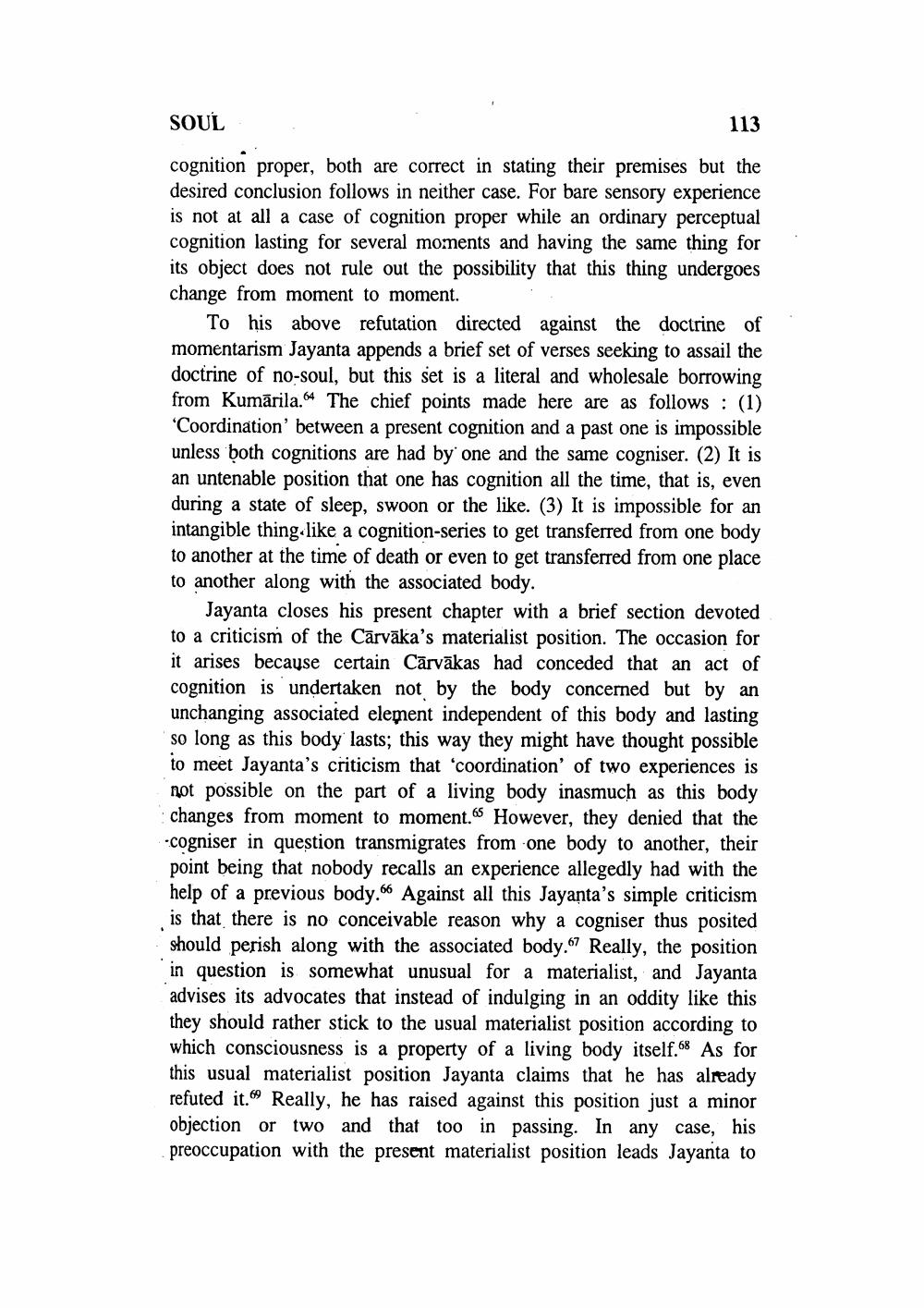________________
SOUL
113
cognition proper, both are correct in stating their premises but the desired conclusion follows in neither case. For bare sensory experience is not at all a case of cognition proper while an ordinary perceptual cognition lasting for several moments and having the same thing for its object does not rule out the possibility that this thing undergoes change from moment to moment.
To his above refutation directed against the doctrine of momentarism Jayanta appends a brief set of verses seeking to assail the doctrine of no-soul, but this set is a literal and wholesale borrowing from Kumārila.64 The chief points made here are as follows : (1) Coordination between a present cognition and a past one is impossible unless both cognitions are had by one and the same cogniser. (2) It is an untenable position that one has cognition all the time, that is, even during a state of sleep, swoon or the like. (3) It is impossible for an intangible thing like a cognition-series to get transferred from one body to another at the time of death or even to get transferred from one place to another along with the associated body.
Jayanta closes his present chapter with a brief section devoted to a criticism of the Cārvāka's materialist position. The occasion for it arises because certain Cārvākas had conceded that an act of cognition is undertaken not by the body concerned but by an unchanging associated element independent of this body and lasting so long as this body lasts; this way they might have thought possible to meet Jayanta's criticism that 'coordination of two experiences is not possible on the part of a living body inasmuch as this body changes from moment to moment. However, they denied that the cogniser in question transmigrates from one body to another, their point being that nobody recalls an experience allegedly had with the help of a previous body. 66 Against all this Jayanta's simple criticism is that there is no conceivable reason why a cogniser thus posited should perish along with the associated body.67 Really, the position in question is somewhat unusual for a materialist, and Jayanta advises its advocates that instead of indulging in an oddity like this they should rather stick to the usual materialist position according to which consciousness is a property of a living body itself.68 As for this usual materialist position Jayanta claims that he has already refuted it. Really, he has raised against this position just a minor objection or two and that too in passing. In any case, his preoccupation with the present materialist position leads Jayanta to




